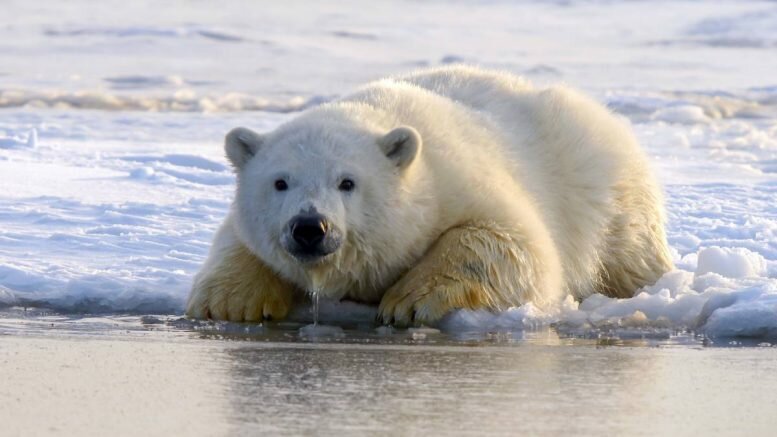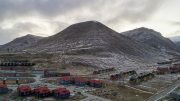Climate change, which is affecting the Arctic at a rapid pace, could lead to polar bears starving to death and becoming extinct, according to a recent study.
Polar bear survival as a species has long been linked to how climate change will develop in the coming decades, but a study published in Nature in July is the first to set a time frame for when they could be eradicated.
In some regions, polar bears are already trapped in an environment where declining sea ice gives them less time to hunt seals, the researchers write in the new study.
“The bears face a longer period without food before the ice freezes again and they can go back to eat,” research manager Steven Amstrup at Polar Bears International, who is behind the study, warned in July.
According to the researchers, the declining body weight of polar bears will weaken their chances of surviving the Arctic winters without food.
Temperature increase
The study concludes that polar bears in 12 of 13 analyzed subgroups will be extinct within 80 years.
That is due to developments in the Arctic, where climate change is happening twice as fast as on the rest of the planet.
“By 2100, new births will be under pressure or impossible, perhaps apart from the subgroup on the Queen Elizabeth Islands,” Amstrup said at the time.
The scenario assumes that temperatures will increase by 3.3 degrees over pre-industrial times. An increase of 1 degree has so far led to heatwaves, drought, and more extreme weather.
The study uses two different data sets. One is related to how much longer polar bears have to go without food, while the other is based on UN climate models that estimate the melting of sea ice.
“By estimating how thin and how fat polar bears can be, and by modeling their energy consumption, we were able to calculate the threshold for how many days a polar bear can fast before the survival rate of the young and adults begins to decrease,” professor Peter Molnar at the University of Toronto, the lead author of the study, said.
For example, a male bear in the West Hudson Bay subgroup, which is 20% below its normal body weight when fasting begins, will only have enough energy left to survive for 125 days, not 200 days.
According to the study, newborns are even more vulnerable, especially when the mothers have not been able to gain enough fat to be able to have nutritious milk.
The habitat is melting
According to the researchers, even if global warming were to be limited to 2.4 degrees, about half a degree above the target set in the Paris Agreement, it will most likely only delay the extinction of the polar bear.
“This surpasses everything that the polar bears have faced in their over one million year-long evolutionary history,” Amstrup noted.
It is not increased temperatures per se that are a threat, but the fact that the polar bears are unable to adapt to the changing environment.
“If the sea ice somehow, magically, stays there, even if the temperatures rise, polar bears may do well. The problem is that their habitat is literally melting,” the researcher warned.
© NTB Scanpix / #Norway Today






Be the first to comment on "Polar bears could become extinct by 2100, study finds"